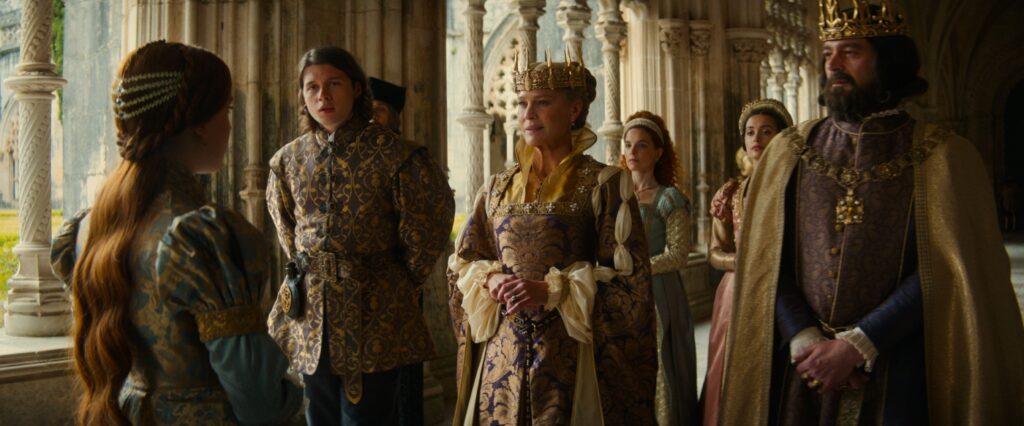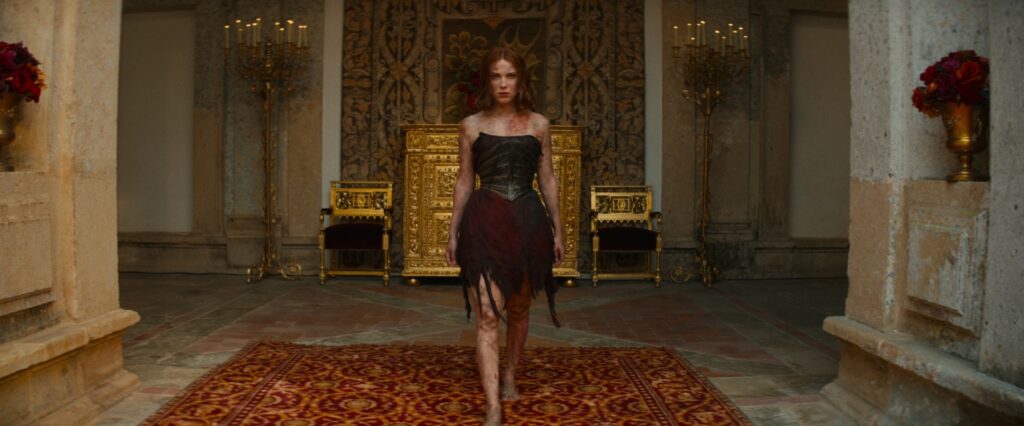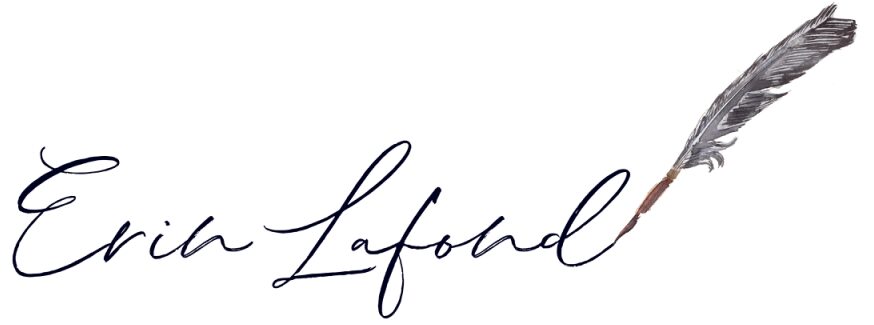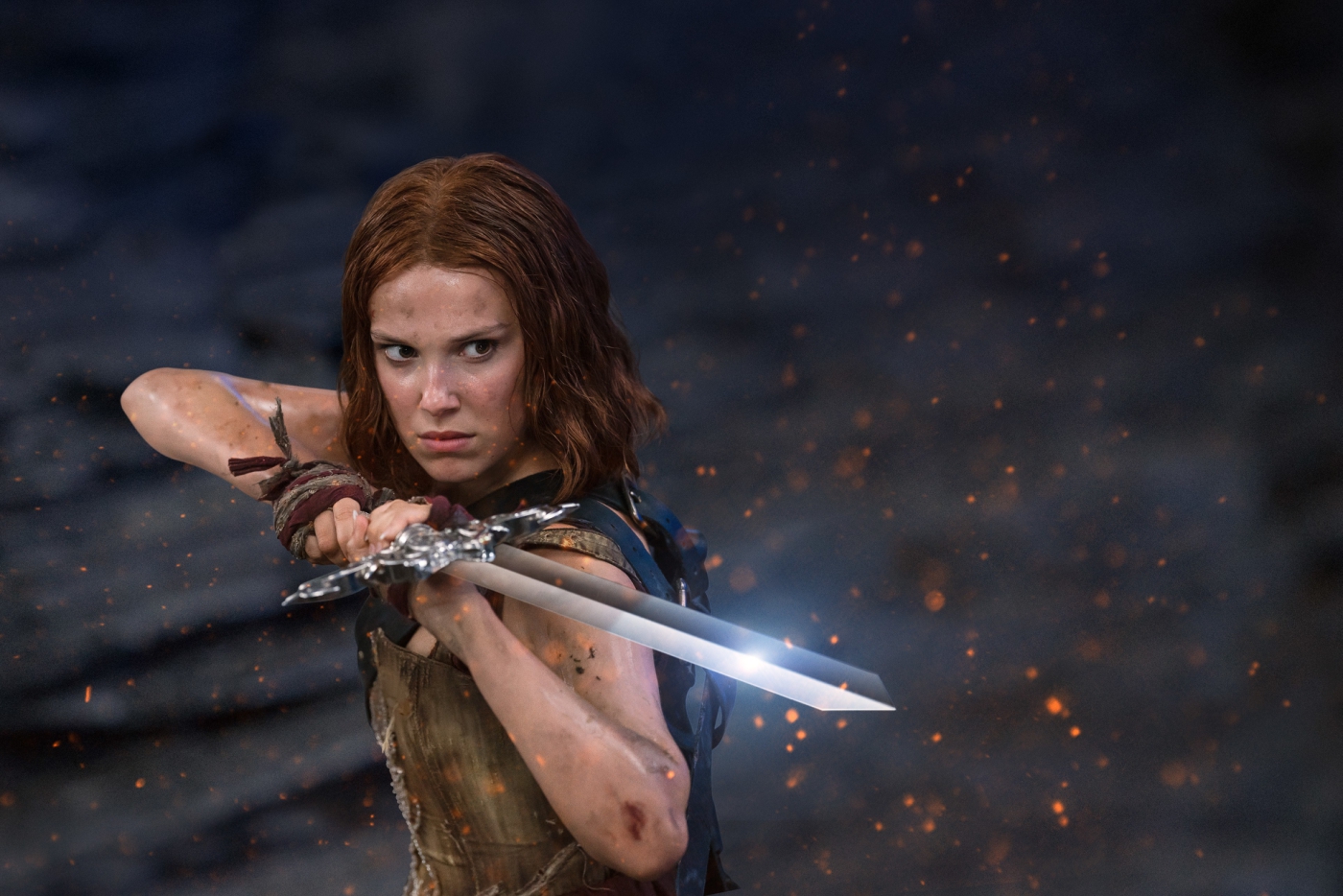The Muddled Story of Damsel
Last updated on April 30th, 2024 at 07:37 pm
You know, I really expected Damsel to be all bad. I don’t think its trailer did it many favors, and I haven’t seen any good reviews for it since it came out. Honestly, I think it’s managed to fly under the radar for the most part, which surprises me since it had Millie Bobby Brown spearheading it. So, when I settled in to watch it, I was prepared for a bad film.
And I was surprised to find it wasn’t a bad film. I wouldn’t call it a good film. The villains were a bit too cartoonish for me. The plot was a little predictable. The politics were muddled, for sure. But it wasn’t all bad. The acting was decent. Personally, I don’t care if the CGI wasn’t great. It didn’t break my immersion. I understand that the film was going for something. For me, I think it was interesting, which is one of the highest compliments I can give.
Spoilers ahead!
About Damsel
The basic premise of the film is the daughter of a lord, Elodie, is chosen to marry a rich prince, which she agrees to do since her home is barren and broke. They go to the rich kingdom, she marries the prince, and he throws her to the dragon, who believes she’s their princess by blood and is determined to kill her. Elodie tries to escape, discovers messages from past lady sacrifices, and eventually fights the dragon to save her sister. It’s a whole thing.

For background, the dragon is appeased every generation by three daughters, whom she murders in revenge for the death of her own three daughters. The big “twist” of the film is that the past king came unprovoked and murdered her children, and it was, in fact, not revenge for the dragon ravaging their kingdom. So, Elodie reveals the kingdom’s trick of mixing her blood with theirs to convince the dragon she’s royal when she is not. She ultimately defeats the dragon by being clever.
Of course, as what traditionally happens in these films in which we’re trying to examine femininity, it is her empathy that is ultimately supposed to differentiate her. After defeating the dragon, she chooses to save her rather than kill her. Together, they go back to the rich kingdom to, quite literally, burn everything down. The dragon burns everyone in the court alive and then follows her back to her homeland.
When I described this to my husband, he said, “Oh, well, I guess empathy can only go so far.” This is true, and it goes back to the heart of why this film feels hollow.
Why Damsel misses the mark
When I say the politics are muddled, I mean that this film is trying to be something it’s not, and it’s not able to really examine the issues it brings up.
A prime example of this is the queen. She is clearly written to be a straight up villain with no empathy of her own. It’s characteristic of women who care only about their own power, rather than the well-being of women collectively.
Women’s worst oppressors have always been women who align themselves with the patriarchy in a misguided attempt to strengthen themselves. But the queen does come off a little cartoonish, a little too lacking in depth. We don’t see the desire to save her kingdom from the dragon or even a desire to hold onto power for power’s sake. She just sacrifices ladies to appease the dragon with no time given to why she’s so ruthless about it. You can gather from plot clues that she’s saving her own life as a royal daughter, but I could be seeing something the film didn’t intend.
This movie thinks it’s about the pain and power of women. The dragon loses her daughters at the hands of men. Countless ladies are thrown to their deaths, making the ultimate sacrifice for the betterment of others. It is Elodie’s connection to the past ladies and their shared, collective knowledge that helps her. Elodie survives using her wits, her strength, and her empathy.

It also seems to think it is responding to past fairy tales – a spin on the classic story we know where the prince saves the damsel, when in this version he’s actually the one who throws her to her death.
However, on both fronts, it doesn’t quite work.
Elodie’s character
Elodie is quite simply not that kind of character. She chops firewood for her people. She creates mazes for fun. Ultimately, she relies on herself and takes care of her family and her people.
We’re not talking about a damsel in distress character who has to learn how to take care of herself, who was constantly relying on others to get through life, who was overwhelmed by the glitz and glamour of the kingdom. The film wants both ideas to exist when, in fact, the Elodie at the beginning of the film is exactly the type of character you would expect to survive the dragon. It is her empathy towards the dragon at the end that feels more uncharacteristic than her stint in the cave. (I think this is because her “empathy” is more about them both being wronged than it is about empathy. If you think about it that way, the film tracks better.) Her sister’s character makes more sense for this type of plot than hers does.
Elodie doesn’t really change throughout the course of the film. She’s the same person but with shorter hair and a dragon sidekick. The movie wants to pretend there’s character development where there is none.
It’s quite possible that I’m giving this movie far too much credit, finding things worth discussing in a clumsy plot. But I guess what I’m trying to say is that I can see what the film was interested in. I can see what it was trying to examine and say. I just don’t think it was executed very well.
In my opinion, Damsel is worth the watch, honestly. I genuinely enjoyed it. I just don’t think it did what it thought it was doing.
Photo Credit: Netflix

